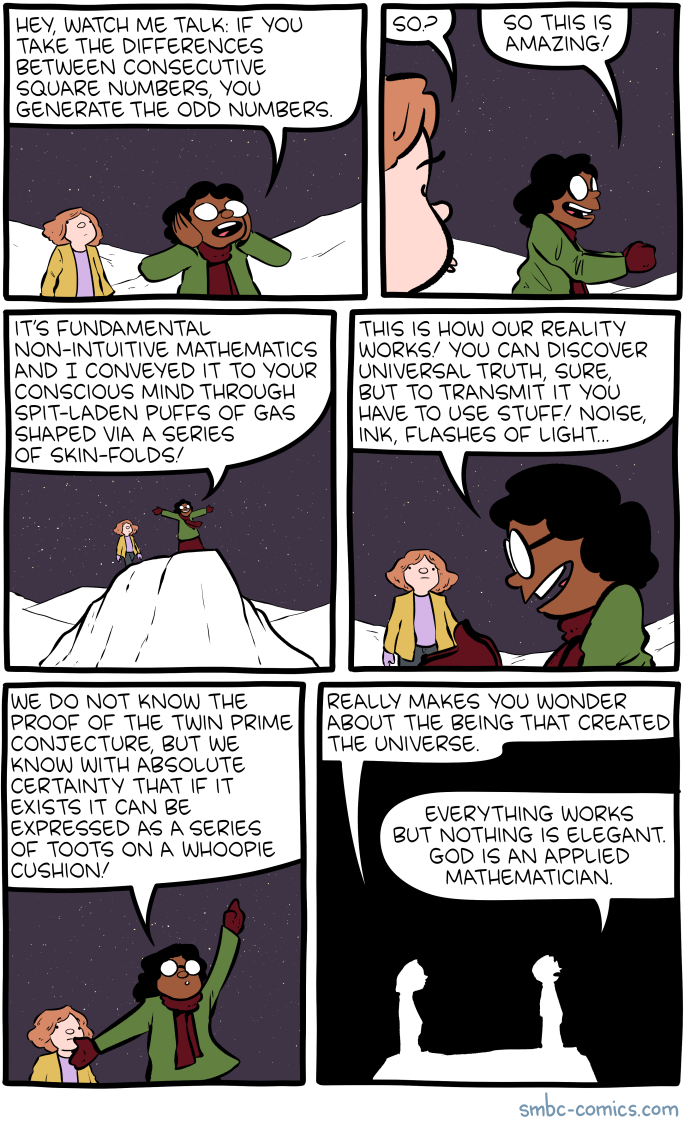an 'enmediated' God
- 4 minutes read - 699 wordsMormon theology doesn’t really do incarnation. Latter-day Saints believe in an embodied God and that (nearly) all humans will be resurrected to perfect bodies after this life and inevitable death. Latter-day Saints are also not Trinitarian and see Jesus and God the Father as more distinct than most Christian traditions do. Between those two beliefs, Jesus’s taking on a mortal body is not really a big deal—it’s kind of par for the course for any human, whether or not they are the Savior of the world. Perhaps because of that contrast, incarnation has been one of the most interesting things for me to think about as I’ve evolved my own theology with my transition out of institutional Mormonism over the past few years. What does it mean for a God that transcends fleshy, imperfect existence to take on mortal form and live among us? I’ve really enjoyed exploring the implications of that reframing (even though, when pressed, I’d probably describe my understanding of God is largely non-theistic and my Christology as pretty low).
More recently, I’ve used the incarnation as a starting point for thinking about what I’m tentatively and awkwardly calling the “enmediation” of God. Let’s be clear: “enmediation” is not a real world. It’s my slapping a prefix that invokes “incarnation” onto the word “mediation” and calling it good. The idea of mediation is pretty straightforward: When we use technologies (whether digital technologies like the internet, analog technologies like paper and pencil, or social technologies like written and spoken language) to transmit something, those technologies mediate what we are translating. They don’t just convey it in an objective and sterile way, but they actually leave their mark on what is being transmitted.
While individual experiences with the divine could be described as transcending any mediation (maybe that’s what makes them experiences with the divine), they can’t stay that way for long. If we want to share our experience with the divine, it must be mediated. If we want to have a shared understanding of God, God must be mediated. Last month, a comic from Saturday Morning Breakfast Cereal captured pretty well what I’ve been trying to get at with this line of thinking. Here’s the visual and then a transcription for screenreaders:

1: Hey, watch me talk: if you take the differences between consecutive square numbers, you generate the odd numbers.
2: So?
1: So this is amazing!
1: It’s fundamental non-intuitive mathematics and I conveyed it to your conscious mind through spit-laden puffs of gas shaped via a series of skin-folds!
1: This is how our reality works! You can discover universal truth, sure, but to transmit it you have to use stuff! Noise, ink, flashes of light…
1: We do not know the proof of the twin prime conjecture, but we know with absolute certainty that if it exists it can be expresed as a series of toots on a whoopie cushion!
2: Really makes you wonder about the being that created the universe.
1: Everything works but nothing is elegant. God is an applied mathematician.
The idea that we “can discover universal truth, sure, but to transmit it [we] have to use stuff!” is what I’m trying to get at with this idea of enmediation. WHy not just use the word “mediation,” which would probably be less awkward? Because I’m interested in the idea that God has chosen to be mediated (as is also cheekily hinted at in the comic, even though Weinersmith is clearly more interested in mathematics than theology). Presumably, Jesus could manifest himself to Christians on a regular basis, but for some ineffable reason, Jesus has allowed Christians’ testimony of Christ to be based on a collection of millennia-old texts composed decades after Jesus’s death in a language that he himself likely couldn’t speak and that few Christians today can.
I don’t know what all of the implications of this are, but I think there are some. In my professional life, I’m very interested in technology and mediation, and it’s interesting to adopt that concept into my theological noodling. I’ve been meaning to write something about this for months, and I’m sure I’ll continue to write on it in the future.
- enmediation
- incarnation
- Mormonism
- theology
- Saturday Morning Breakfast Cereal
- webcomics
- Christology
- non-theism
- Zach Weinersmith
similar posts:
on distinctions between 'church' and gospel'
🔗 linkblog: Cat and Girl'
📚 bookblog: ❤️❤️❤️❤️🖤 for How Jesus Became God: The Exaltation of a Jewish Preacher from Galilee, by Bart Ehrman
🔗 linkblog: Pluralistic: Kelly and Zach Weinersmith’s “A City On Mars” (09 Jan 2024) – Pluralistic: Daily links from Cory Doctorow'
I didn’t learn to swear until I was in my 30s, so I have a lingering suspicion that I wind up sounding like Captain Kirk in Star Trek IV.
comments:
You can click on the < button in the top-right of your browser window to read and write comments on this post with Hypothesis.